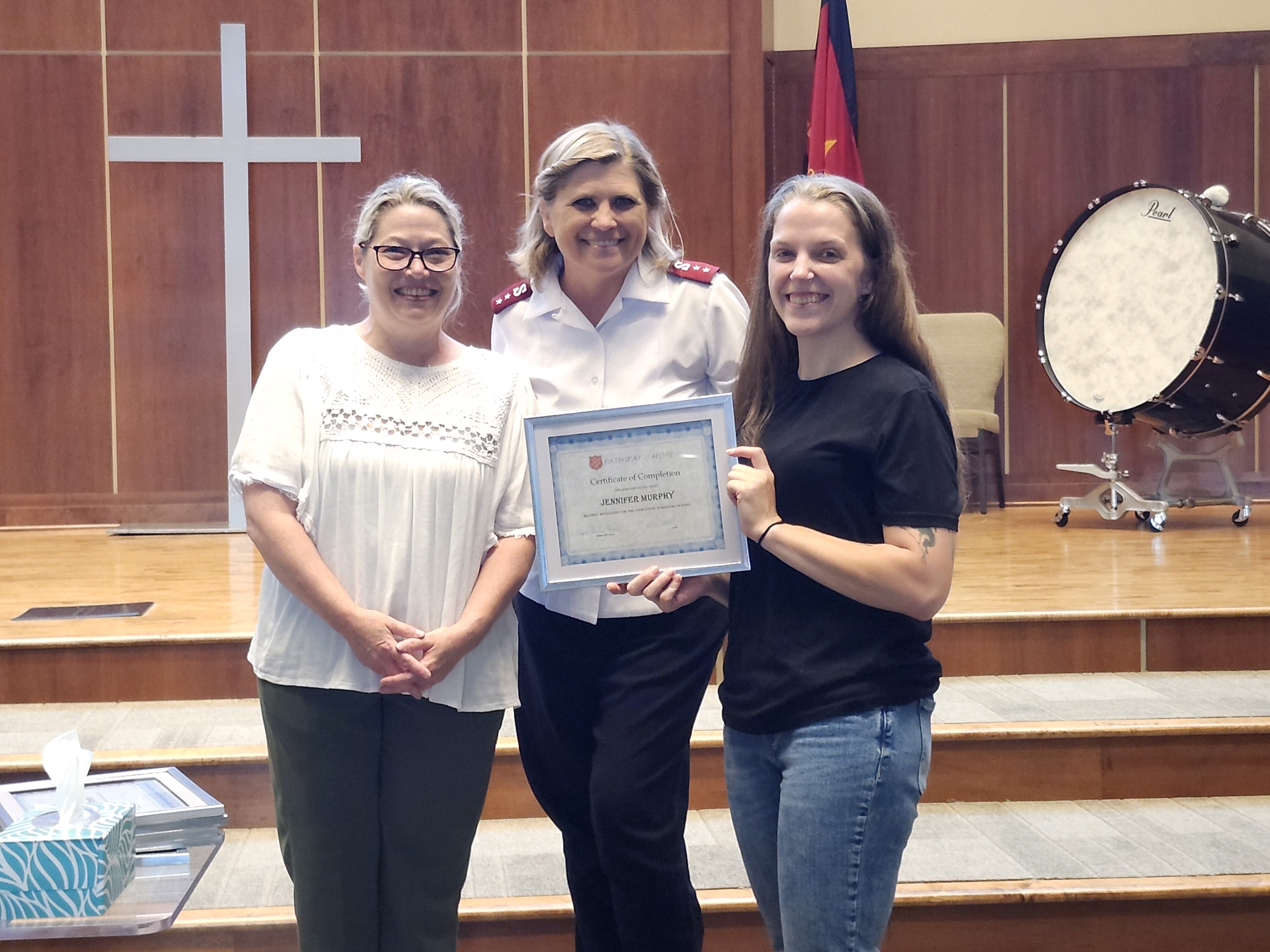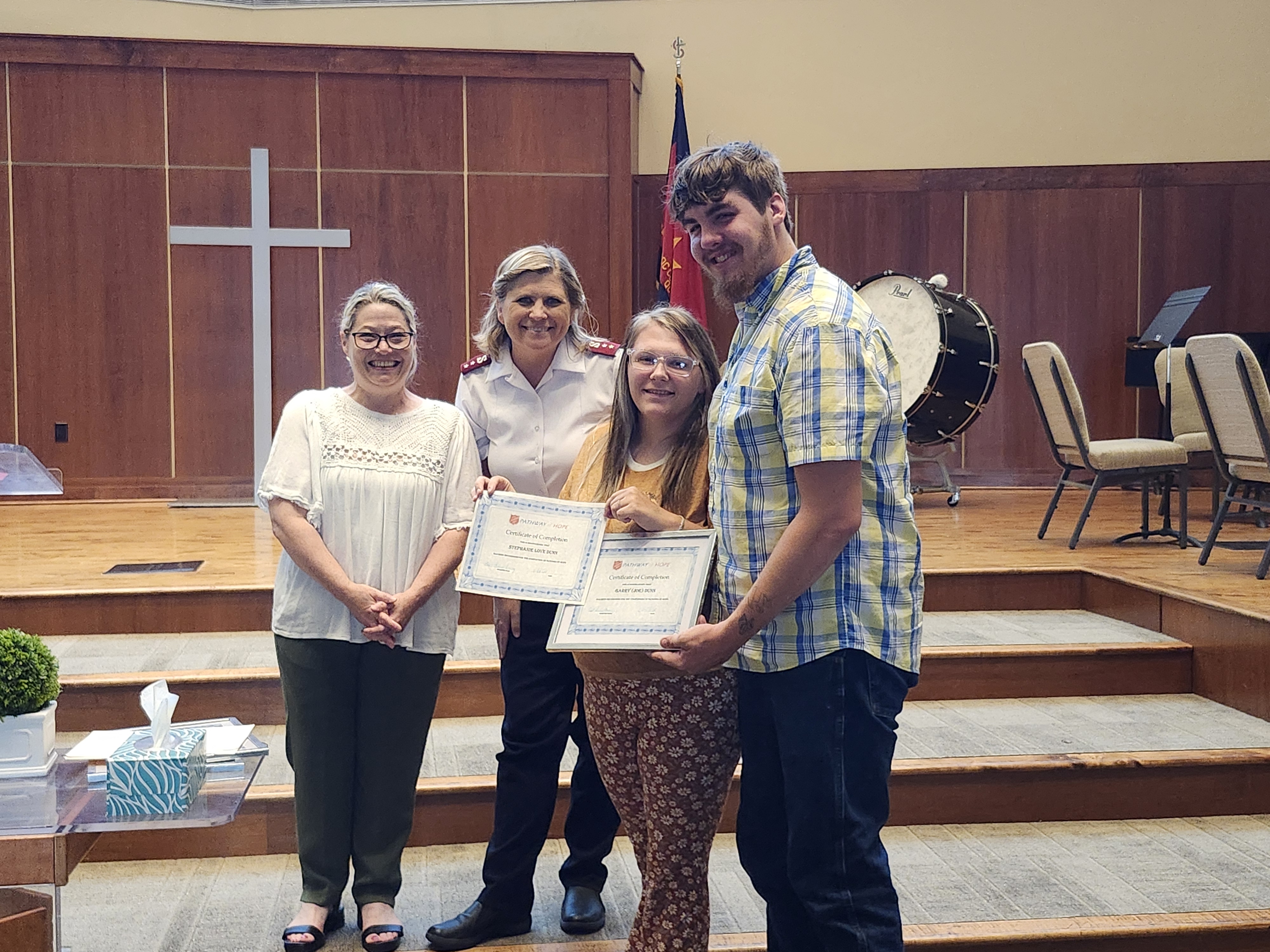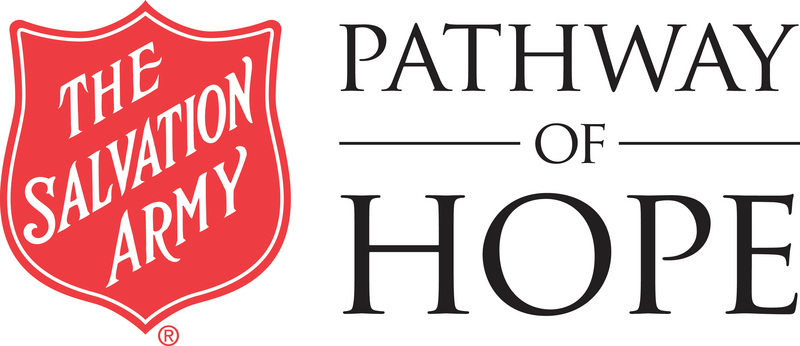Quincy Pathway of Hope Graduates Find Strength in Stability
Approximately 1 in 6 Americans live in poverty – an all-time high. The Salvation Army’s Pathway of Hope initiative, active across corps locations and cities nationwide, provides individualized services to families with children who want to take action to break the cycle of crisis and vulnerability. By helping families overcome challenges like unemployment, unstable housing, and lack of access to education, we can lead families down a path toward increased stability and, ultimately, self-sufficiency.
Recently, five individuals graduated from the Pathway of Hope program in Quincy – a rite of passage that carries a deeper meaning for participants and case managers alike.
“The bravery and commitment of the clients is incredible to witness,” said Pathway of Hope Coordinator and case manager Coby Chandler. “Not only do they want change, but they are willing to commit to that change to positively impact their circumstances. I’m grateful to play a small role in this transformative program and enjoy seeing the graduates grow into their own self-sufficient lives.”

Rather than looking at problems, The Salvation Army’s strengths-based case management model focuses on possibilities and further developing those strengths.
The inspiring stories of our graduates bring to life the unimaginable circumstances they faced and how Pathway of Hope has helped program participants, and their families overcome various challenges.
Family of four Escapes Deplorable Conditions, finds a Place to Call Home
Our Pathway of Hope case manager was contacted by a local church in the community about a single mother of three small children. She had gone to their food pantry, and members of the church were concerned about the family’s wellbeing. After an initial appointment with our Pathway of Hope case manager, the mother applied to the Angel Tree program so that her children could receive Christmas gifts. The Captains of The Salvation Army helped to deliver those gifts to the home and were also concerned for the family after seeing the condition of the home when visiting.
The mother had unfortunately been a victim of severe domestic violence and along with her housing circumstances, caused the mother to become depressed and have feelings of hopelessness. The mother had in essence given up.
She and her children were living in a slumlord house with no heat in the middle of a frigid Illinois December. Her pipes froze and basement flooded, which became a sheet of ice. The horrible condition of the home made much of the three-bedroom unlivable, confining them to only one usable room in the house.
The mother received assistance with diapers, and her dedicated case manager drove the family to appointments as this was their only available form of transportation.
The case manager helped get the family into income-based housing and helped the mother start counseling, where she gained a new sense of strength for her family and their future. She received a donated car and has been able to manage the expenses associated with it. The mother has also been able to afford toys and clothing from The Salvation Army’s thrift stores. The family’s success with the program has allowed them to spend more time together learning more creative ways to play. The family has shown progress from living in crisis - mode to being a happy and healthy family.
The mother has started classes at the local community college. She hopes to earn her Associates of Science degree, and ultimately work with families who have similar experiences to hers.
New Parents on Path to Better Life for Newborn Daughter
A newly married husband and wife were expecting their first child. They were unemployed and unhoused, sleeping on a family friends couch. The husband was the brother of another Pathway of Hope client and was familiar with the program. The Salvation Army was able to provide them with referrals to public benefits, medical care for mom and baby, pregnancy resources, car seat assistance, and WIC enrollment.
The couple was able to find housing at an income-based complex, and the husband began working, but ultimately lost his job. When their healthy baby girl was born, the family received assistance with diapers and continues to use the diaper resource when needed.
Today, the husband is enrolled in a trade program at a local community college and the wife is enrolled in GED and CNA classes. Both are committed to taking positive steps and providing a better life for their daughter.
Father in Recovery Regains Custody of Children
An unhoused, unemployed husband and wife lost custody of their two children following a DCFS investigation. The grandmother in custody of the children brought the husband-and-wife duo, struggling with drug abuse, to Pathway of Hope, pleading for a solution.
A case manager found them income-based housing, though the couple continued to face roadblocks – one step forward, two steps back. While the husband had his high school diploma, the wife did not, and both struggled to keep a consistent job.
The couple has since divorced, but both remain in the program. The husband focused on his recovery, enrolling in community college to earn a trade degree and regained custody of their children. The case manager consistently encourages them to celebrate their small successes because those small steps is what ultimately leads to their end goal.

With five individuals having recently graduated, the Pathway of Hope program in Quincy currently has 14 families enrolled. The need to serve families remains significant. It’s not well known that many shelters do not serve families with children, so for many people, Pathway of Hope is a lifesaving resource. Click here to donate to the Salvation Army in Quincy.

